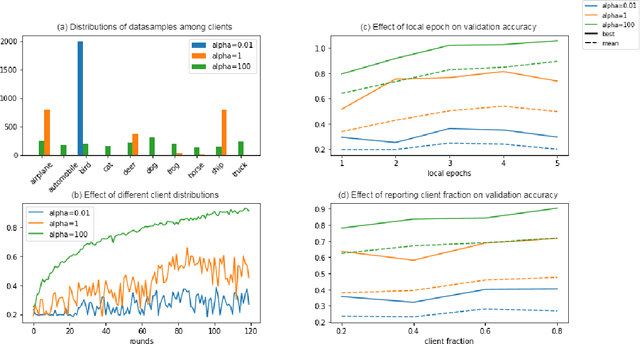Mohamad Mohamad
Mode-Dependent Rectification for Stable PPO Training
Feb 05, 2026Abstract:Mode-dependent architectural components (layers that behave differently during training and evaluation, such as Batch Normalization or dropout) are commonly used in visual reinforcement learning but can destabilize on-policy optimization. We show that in Proximal Policy Optimization (PPO), discrepancies between training and evaluation behavior induced by Batch Normalization lead to policy mismatch, distributional drift, and reward collapse. We propose Mode-Dependent Rectification (MDR), a lightweight dual-phase training procedure that stabilizes PPO under mode-dependent layers without architectural changes. Experiments across procedurally generated games and real-world patch-localization tasks demonstrate that MDR consistently improves stability and performance, and extends naturally to other mode-dependent layers.
Renal Cell Carcinoma subtyping: learning from multi-resolution localization
Nov 14, 2024Abstract:Renal Cell Carcinoma is typically asymptomatic at the early stages for many patients. This leads to a late diagnosis of the tumor, where the curability likelihood is lower, and makes the mortality rate of Renal Cell Carcinoma high, with respect to its incidence rate. To increase the survival chance, a fast and correct categorization of the tumor subtype is paramount. Nowadays, computerized methods, based on artificial intelligence, represent an interesting opportunity to improve the productivity and the objectivity of the microscopy-based Renal Cell Carcinoma diagnosis. Nonetheless, much of their exploitation is hampered by the paucity of annotated dataset, essential for a proficient training of supervised machine learning technologies. This study sets out to investigate a novel self supervised training strategy for machine learning diagnostic tools, based on the multi-resolution nature of the histological samples. We aim at reducing the need of annotated dataset, without significantly reducing the accuracy of the tool. We demonstrate the classification capability of our tool on a whole slide imaging dataset for Renal Cancer subtyping, and we compare our solution with several state-of-the-art classification counterparts.
FedOS: using open-set learning to stabilize training in federated learning
Aug 26, 2022



Abstract:Federated Learning is a recent approach to train statistical models on distributed datasets without violating privacy constraints. The data locality principle is preserved by sharing the model instead of the data between clients and the server. This brings many advantages but also poses new challenges. In this report, we explore this new research area and perform several experiments to deepen our understanding of what these challenges are and how different problem settings affect the performance of the final model. Finally, we present a novel approach to one of these challenges and compare it to other methods found in literature.
 Add to Chrome
Add to Chrome Add to Firefox
Add to Firefox Add to Edge
Add to Edge